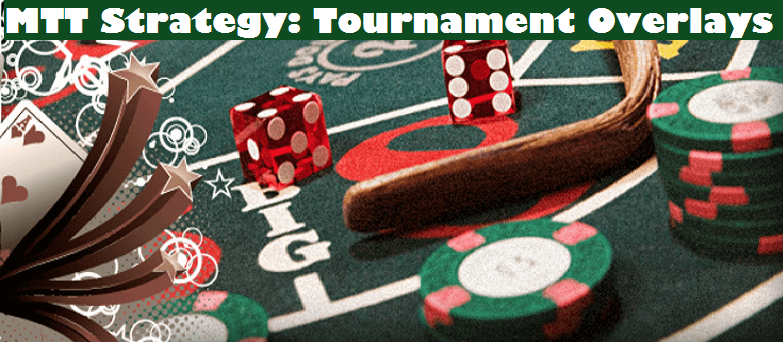Poker Live Tournament Strategy
Playing your first live poker tournament can be a slightly daunting experience. But if you've played poker at home, online or even at a local card room once or twice, the core elements and strategy of the game don't change. Poker world champion is deemed to be the winner of the $10,000 buy-in no-limit Texas hold’em tournament, played during the World Series of Poker in Las Vegas every sum-mer 59. Therefore a poker player that is capable of winning the world championship needs to be able to play:. Texas hold’em poker,. With a no-limit betting structure.
- Poker Tournament Tip 1: Steal a Lot, But Don’t Go Overboard “Open small and often.” This phrase drove the pre-flop strategy of almost every tournament regular for years, and it still has some merit. With antes in play, a 2.25BB open has to pick up the pot less than half of the time to show an immediate profit.
- There are essentially five key strategic areas that you will need to focus on when you play Texas Hold’em cash games. For Texas Hold'em tournament strategy, there exists a whole set of other poker tournament tips. While there are many things that add up to good poker strategy, we feel that these are the Top Five for new or intermediate players.
Have you ever watched high stakes poker pro's online, on the TV, or in person and thought to yourself how
did they get to where they are today? Most of them had no help along the way to becoming a professional poker
player. In fact, many of them have stories of being completely broke and even in debt before they were able to get their
poker game together to build the bankrolls they have today.
Every professional poker player I know had to push through the bad times to really build their bankroll. Our goal is to deter you from making many mistakes that many amateur players make and help you to follow a step-by-step system and game plan that will result in you pulling consistent profits from playing poker online.
Is your dream to learn how to crush cash games? How would it feel to consistently be able to turn a $100-$200 buy-in into over $1,000 night after night?
The first thing that you want to do before playing in a video poker tournament is figure out the rules and other details.
This is important because you must decide what kind of strategy is needed to reach the prize money. You must also figure out what tourneys best suit you.
Here are the standard types of video poker tournaments:
- Buy-In Without a Fee – These events see 100% of players’ buy-ins go directly into the prize pool.
- Buy-in with a Fee – The casino that’s hosting the tournament takes a small fee from each buy-in. In most cases, the fee includes an extra 5%-10% on top of the buy-in (e.g.,$100 + $10).
- Open Freeroll – A freeroll is aptly named, since you don’t have to pay anything to enter. The “open” aspect refers to how anybody at the casino can enter because there aren’t any requirements.
- VIP Freeroll – These tournaments also don’t require players to pay an entry fee. The catch is that you have to be a certain VIP status to be invited.
You should use your specific situation to decide what type of events you’re willing to play.
A well-funded video poker player who wants to compete for big prize money will find open freerolls to be a waste of time.

This is because open freerolls can draw hundreds or thousands of players. And the prize pools are generally small, meaning a tiny percentage of the field will cash.
On the other hand, any gambler with a small bankroll should consider open freerolls because these offer a chance to win real money.

Another consideration comes in with VIP freerolls. Specifically, you want to decide whether the freeroll prize pools make it worth attaining a specific loyalty status.
You should also look at the other rewards being offered in the program to see if it’s worth meeting the VIP status requirements.
When it comes to buy-in tournaments, you obviously want to play in events where you don’t have to pay extra fees. But keep in mind that tourneys with house fees can be the most lucrative in termsof prize pools.

As for the rules, you need to know if a tourney has a time limit, credit limit, hand limit, or a combination of these. Here are different formats featured in video poker tournaments:
- Timed – These tournaments last for a specific number of minutes (e.g., 20 minutes). The winner is the player with the highest score when the time is up.
- Credit Limit – Entrants continue playing until their credits run out. The winner is determined by who has the most credits when everybody is finished playing their round.
- Credit and Time Limit – Ends when the time limit is reached. But players can also run out of credits before the time limit.
- Hand Limit – The tournament runs for a specific number of hands (e.g., 300 hands). The winner is the player who has the highest bankroll when the hands are finished.
Timed tournaments are the most common in video poker. These see you play as quickly as possible in hopes of winning the most credits.
For example, you may be given 30 minutes to rack up as many credits as possible. When the half hour is up, players’ scores are tallied, and a winner is determined.

You want to play as quickly as possible in any timed video poker tourney. This ensures that you give yourself the best possible chance to win lots of credits.
Best Live Poker Tournament Strategy
Hand limit events are also fairly common. An example would be a tournament that lasts for 500 hands.
Live Casino Poker Tournament Strategy
You should take your time with these tourneys because there’s no pressure and you want to make the best decisions.